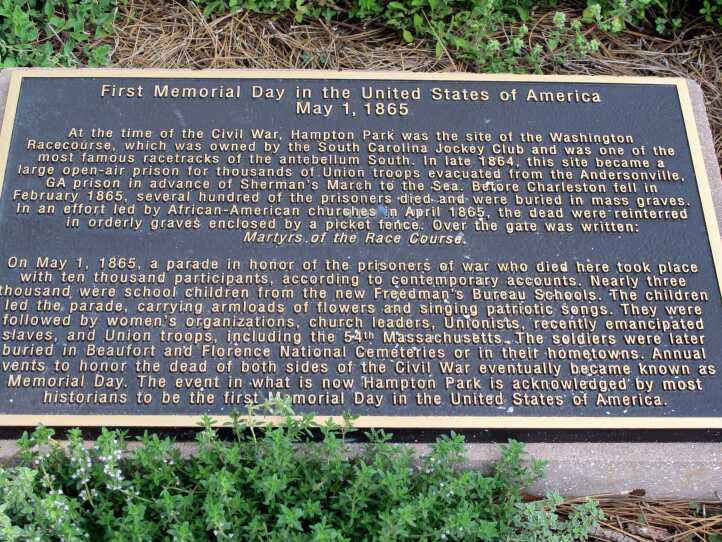On that special day of remembrance, there was a parade of 3,000 school children carrying roses; women with baskets of flowers, wreaths, and crosses, followed by both local men and a cadre of soldiers marching in cadence. The procession ended at the local cemetery with a program of speeches, Bible readings, and patriotic songs, including the “Star-Spangled Banner.”
It was Charleston, South Carolina, May 1865, and the civil war was finally over. Those men and soldiers marching, those children with roses, those women with flower baskets — all Black.
This was the first Memorial Day. They called it Decoration Day. They decorated the gravesites of the fallen with the crosses and flowers. Then, as now, there were plenty of games and picnicking.
Historian David Blight has documented that the 34th and 104th colored union troops performed a special double columned march around the gravesites. Marching with them was our own 54th Massachusetts.
I didn’t know this history until a few years ago. Professor Blight says it was deliberately suppressed by white Charlestonians who substituted their own version of the event. But now that first ceremony has been restored in the history books, and an official marker notes the spot where those freedmen and their families gathered.

There is a bittersweet irony to this history. President Abraham Lincoln had issued the Emancipation Proclamation during the war; but many of the soldiers were freedmen who liberated themselves when they ran away from their masters and joined the Union Army. Though free of slavery’s chains, they were not yet citizens — that didn’t come until three years later and the 14th Amendment.
Perhaps freedom and liberty are most precious for those who have to fight for it. Those African Americans were hopeful that the promise of a reunited America would eventually be realized for them.
This Memorial Day, I will invoke the spirit of those who came together that May — 159 years ago.
True believers. True loyalists. True patriots.






